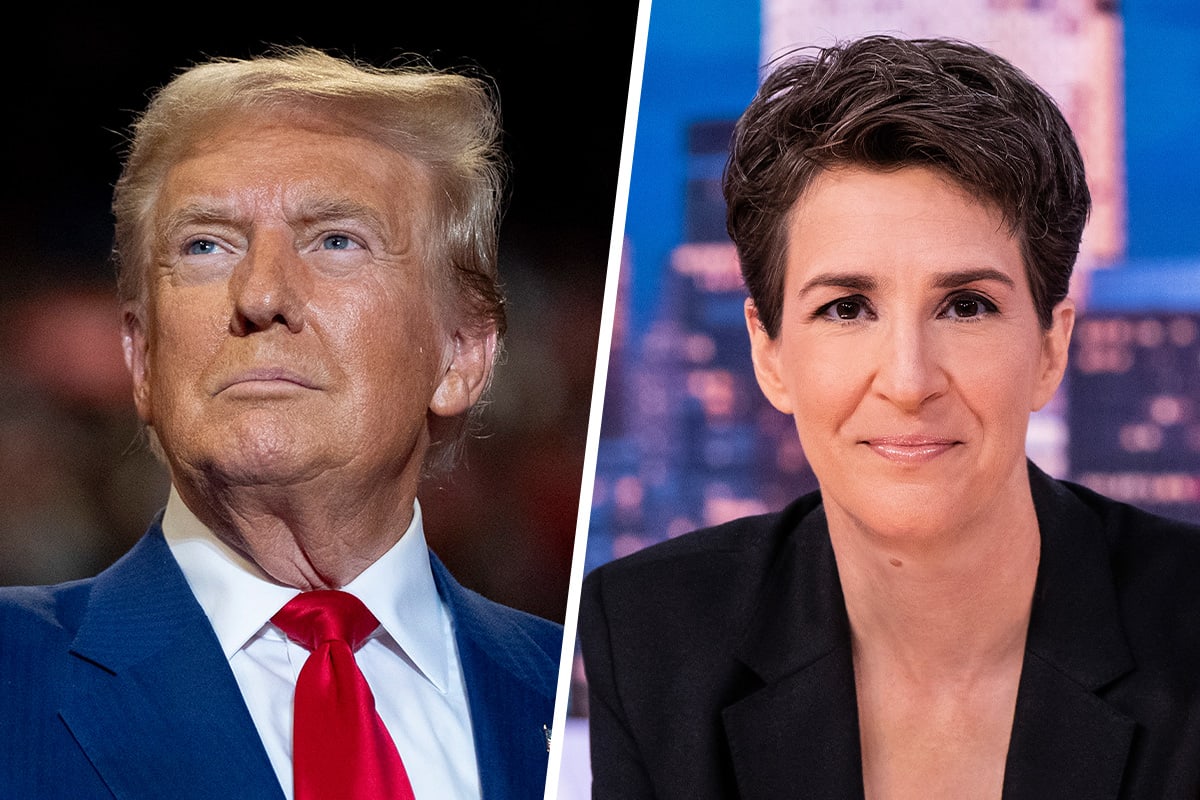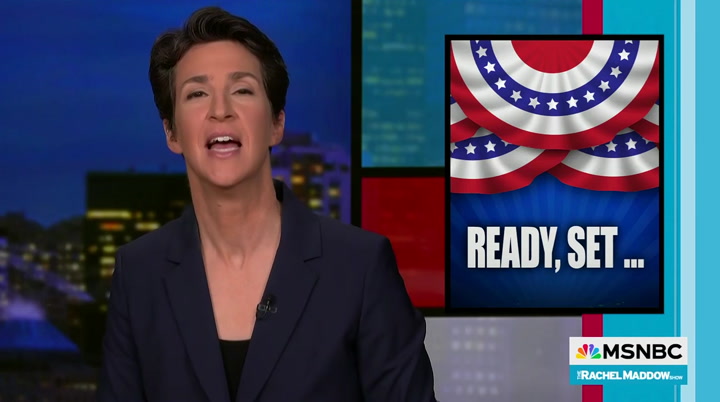
Rachel Maddow, the well-known host of MSNBC’s “The Rachel Maddow Show,” has been a consistent voice in American political commentary for years. Recently, she has highlighted a pressing concern about the future of American democracy under the current administration. According to Maddow, the critical question is not what President Donald Trump will do next; it’s what the American people will allow him to do. Her comments underscore a deep, troubling trend in American politics—the growing disconnection between citizens and their government, and the resulting erosion of democratic principles.
Maddow’s warning speaks to the heart of the ongoing political crisis in the United States. While many Americans focus on the actions and statements of President Trump, Maddow urges us to shift our attention to a more profound issue: the role of public consent in enabling or restricting presidential power. It is not enough to merely watch and critique Trump’s policies; the real danger lies in the passive acceptance of these policies by the electorate.
The Role of the People in a Democracy
At the core of Maddow’s message is the idea that democracy is only as strong as its citizens’ participation. In a true democracy, the government derives its power from the will of the people, and the people are entrusted with holding their leaders accountable. Yet, as Maddow points out, many Americans have grown disillusioned or disengaged from the political process. This disengagement has allowed Trump’s controversial decisions and actions to go unchecked, leading to a dangerous concentration of power in the executive branch.
Maddow’s analysis is timely, as we are living in an era where presidential power has expanded to unprecedented levels. From executive orders to the manipulation of the justice system, Trump has repeatedly tested the limits of his authority. However, the more troubling aspect of this situation is the widespread acceptance—or indifference—among certain segments of the American public. While there are vocal protests and critiques, many Americans have failed to mobilize effectively against these actions, allowing them to persist and even flourish.
The Dangers of Passivity in Politics
The concept of political passivity is not new, but it has become especially relevant in the Trump era. Political scientists have long warned about the dangers of an uninvolved electorate. When voters fail to hold their leaders accountable, or when they disengage from the political process entirely, the very foundations of democracy can begin to erode. Maddow’s comments highlight the risk of complacency in the face of authoritarian tendencies.
This phenomenon can be seen in the apathy of some voters who do not engage with crucial issues, such as voting in local or midterm elections, participating in protests, or holding their representatives accountable. When a large portion of the electorate withdraws from these responsibilities, it creates a vacuum of power that can be filled by individuals who are less concerned with democratic norms and more focused on consolidating their own power.

The Power of the Media in Shaping Public Opinion
In addition to the role of the people, Maddow also emphasizes the importance of the media in checking presidential power. The media has historically served as a watchdog of the government, holding politicians accountable for their actions and bringing transparency to the political process. In recent years, however, the media landscape has become increasingly polarized, with some outlets choosing to support rather than scrutinize the president.
Maddow, as a prominent figure in American media, has consistently used her platform to challenge the narrative coming out of the White House. She has been one of the most vocal critics of Trump, highlighting his numerous controversies and his disregard for established political norms. However, even with a strong media presence, Maddow acknowledges that the media alone cannot prevent the abuse of power. Without active public engagement, the media’s influence can only go so far.
The Implications of a “Post-Democratic” System
Maddow’s warning also points to a broader, more existential question about the future of American democracy. What happens when the people no longer exercise their power to check the government? What happens when political participation becomes optional rather than mandatory? Maddow suggests that if this trend continues, the United States could slip into what she refers to as a “post-democratic” system—a system where power is concentrated in the hands of a few, and the voice of the people is drowned out by political elites and corporate interests.
This shift toward authoritarianism, according to Maddow, is not just a theoretical risk but an ongoing reality. The erosion of democratic norms can be seen in Trump’s repeated attacks on the media, his dismissal of judicial rulings that conflict with his agenda, and his disregard for established checks and balances. These actions, while alarming on their own, are even more concerning in the context of a public that has largely accepted them as normal.
The Importance of Civic Engagement
In response to these challenges, Maddow calls for a renewed emphasis on civic engagement. Democracy, she argues, is not a passive process. It requires active participation from the public, whether that means voting in elections, organizing protests, or engaging in dialogue about the future of the nation. For Maddow, the solution to the current crisis lies not in waiting for the president to change his behavior but in demanding accountability from him and from all elected officials.
She urges Americans to recognize their power to shape the political landscape, not just through their votes, but through their actions and their voices. The real power of democracy lies in the hands of the people, and it is the responsibility of every citizen to ensure that this power is not squandered.
Conclusion: A Call to Action
Rachel Maddow’s comments serve as both a warning and a call to action. She highlights the dangers of political passivity and stresses that the future of American democracy depends on the willingness of the public to demand accountability from their leaders. It is not enough to wait for a president to change his behavior; it is up to the people to make their voices heard and ensure that their government remains accountable to them.
In the face of rising authoritarian tendencies and the erosion of democratic norms, Maddow’s message is clear: the American people must not allow Trump—or any other leader—to act without restraint. The power to shape the future of the country lies in the hands of the citizens, and it is their responsibility to ensure that democracy remains strong and vibrant.
If Americans fail to act, the consequences could be dire. But if they rise to the challenge, they can ensure that the government remains by the people, for the people, and of the people.





